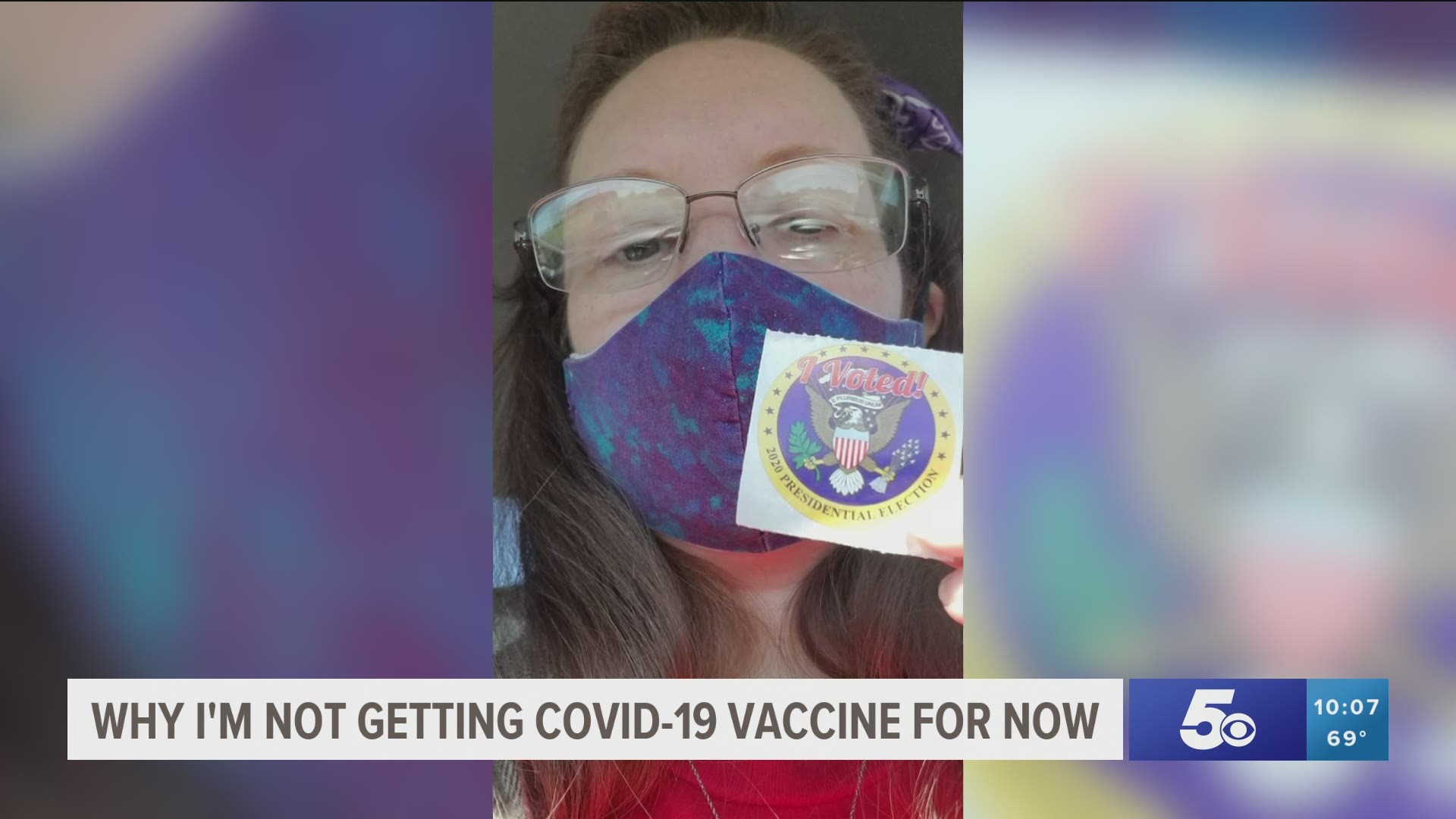MULDROW, Okla — The decision to get a COVID-19 vaccine or not is a very personal one, something each of us has to weigh for ourselves. 47-year-old Rebecca Rowe lives in Muldrow, Oklahoma, and works in Fort Smith, Arkansas. She wears a mask, social distances and washes her hands both on the job and in her personal life.
“For me, I think you can go without getting the vaccine and still follow all the CDC guidelines and still limit and prevent the spread the way we were doing prior to the vaccines,” said Rebecca Rowe.
Rowe says she’s not against vaccines – she’s gotten all her vaccines and gotten her daughter all of her shots. Her decision not to get a COVID-19 vaccine, for now, is because they’re currently only authorized for emergency use, not fully FDA-approved.
“It was more of the fact that it hadn’t gone through all of the testing and everything, so they didn’t know the full possible issues that any of the vaccines may have later,” Rowe said.
We took her concerns to the Arkansas Department of Health. State Epidemiologist Dr. Jennifer Dillaha explained that most, if not all, long-term effects would present fairly early on.
“The immune-mediated effects will show up in about the first 6 weeks or less,” said Dr. Jennifer Dillaha. “The vaccine itself, once it’s injected into the muscle, is gone in a day or two.”
She explains that people should be confident in vaccines that have been EUA authorized.
“That doesn’t mean that any of the efficacy or any of the safety steps have been cut short or omitted,” Dr. Dillaha said. “It is a safe and effective vaccine, and I encourage people to take advantage of it.”
Dr. Dillaha also encourages people to evaluate the risk of getting sick compared to the risk of the vaccine, something Rowe has thought about.
“I’m pretty well healthy. I have no real underlying conditions to worry about,” Rowe said. “I feel like, if I did get exposed and did come down with COVID, I would probably fight it off better than say one of my 82-year-old patients who came in.”
Ultimately, Rowe believes everyone needs to decide what’s best for them, and she’s had open conversations with people on both sides of the issue.
“Some people seem to think that if you don’t get vaccinated, you’re against anyone getting vaccinated. I have no problem with anyone else getting vaccinated because it’s a personal decision for each person, and they have to look at their own circumstances,” Rowe said.
And Rowe says in the future, she may change her mind.
“I would like to see the full FDA approval so that - it would make me feel more comfortable about getting it,” Rowe said.
Rowe says that her husband and daughter have also chosen not to get vaccinated within her family, but her mother is fully vaccinated. She says, thankfully, no one in her family has contracted the virus, but she does know friends who have gotten ill during the pandemic.
RELATED: River Valley teacher and breast cancer survivor explains her choice to get COVID-19 vaccine

